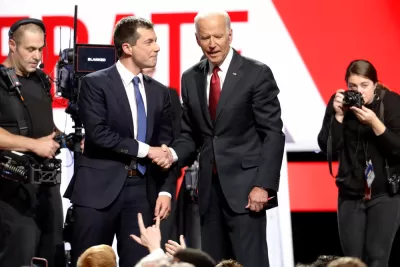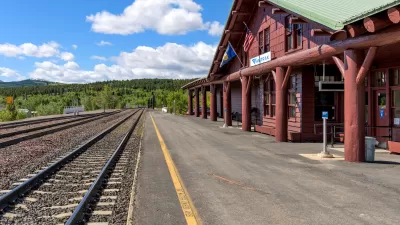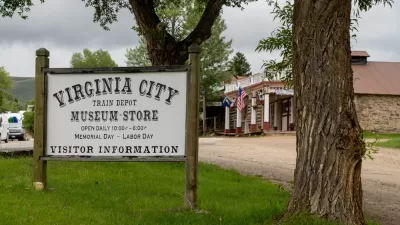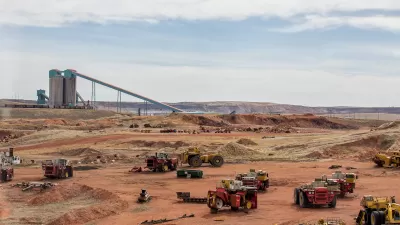Congress has an opportunity to acknowledge the racial inequity built into our failing infrastructure and to put into operation the promise of equity in Biden’s infrastructure plans.

The Biden presidency provides more than a glimmer of hope—and Congress has an incredible opportunity to join his vision— for an infrastructure package that will create generational investment in our communities, families, and children. Investing in housing, transit, and community institutions can be a promise and a commitment to begin to repair not just the damage of the previous presidency and the pandemic but also the cumulative impacts of other historical wrongdoings—such as redlining and segregation, income inequality, and environmental injustice.
The $2 trillion American Jobs Plan and its companion $1.8 trillion American Families Plan unveiled by Biden have lofty goals and are much needed: they include rebuilding 20,000 miles of roads, highways, and rail; confronting the climate crisis; curbing income inequality; improving community care facilities for seniors and people with disabilities; generating millions of new jobs; and making a focused set of investments in health care, child care, and education.
Congress has an opportunity it must not squander to acknowledge the racial inequity built into our failing infrastructure and put into operation the promise of equity in Biden’s infrastructure plans. To accomplish that we need to do two things: (1) invest in underinvested communities by pairing large-scale capital infrastructure and social investments with funding to develop a nimble and well-supported ecosystem that can translate those investments into real change in specific communities, and (2) guard against the kinds of unintended consequences that have beset previous initiatives.
Models for an Infrastructure Plan
Five historic, game-changing bills could provide a model for building community infrastructure and networks that increase community capacity to respond to pressing crises. All four created durable funding streams that allocated resources to communities of all sizes across the country . . .
FULL STORY: How to Get Racial Equity into Biden’s Infrastructure Plan

Alabama: Trump Terminates Settlements for Black Communities Harmed By Raw Sewage
Trump deemed the landmark civil rights agreement “illegal DEI and environmental justice policy.”

Planetizen Federal Action Tracker
A weekly monitor of how Trump’s orders and actions are impacting planners and planning in America.

How Atlanta Built 7,000 Housing Units in 3 Years
The city’s comprehensive, neighborhood-focused housing strategy focuses on identifying properties and land that can be repurposed for housing and encouraging development in underserved neighborhoods.

In Both Crashes and Crime, Public Transportation is Far Safer than Driving
Contrary to popular assumptions, public transportation has far lower crash and crime rates than automobile travel. For safer communities, improve and encourage transit travel.

Report: Zoning Reforms Should Complement Nashville’s Ambitious Transit Plan
Without reform, restrictive zoning codes will limit the impact of the city’s planned transit expansion and could exclude some of the residents who depend on transit the most.

Judge Orders Release of Frozen IRA, IIJA Funding
The decision is a victory for environmental groups who charged that freezing funds for critical infrastructure and disaster response programs caused “real and irreparable harm” to communities.
Urban Design for Planners 1: Software Tools
This six-course series explores essential urban design concepts using open source software and equips planners with the tools they need to participate fully in the urban design process.
Planning for Universal Design
Learn the tools for implementing Universal Design in planning regulations.
Jessamine County Fiscal Court
Caltrans
Institute for Housing and Urban Development Studies (IHS)
City of Grandview
Harvard GSD Executive Education
Toledo-Lucas County Plan Commissions
Salt Lake City
NYU Wagner Graduate School of Public Service





























